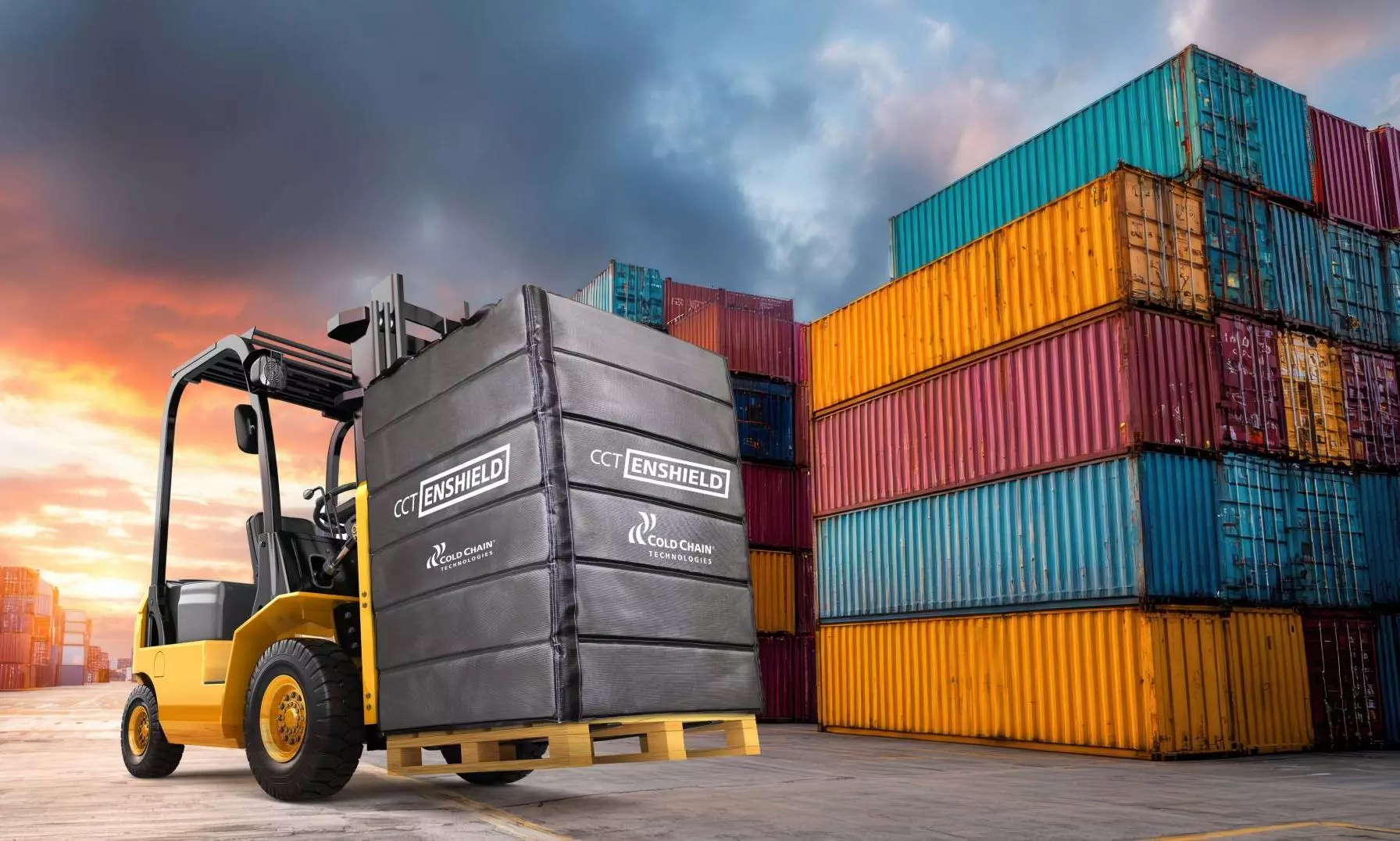Cold Chain Technologies proves sea freight safe for pharma shipments
CCT, Kuehne+Nagel, and Teva transported temperature-sensitive pharmaceuticals by sea, keeping cargo safe despite delays.

Cold Chain Technologies (CCT) has proven that sea freight can be a safe, cost-effective, and sustainable alternative to air cargo for temperature-sensitive pharmaceutical shipments. In a landmark project with Kuehne + Nagel and Teva Pharmaceuticals, CCT successfully transported high-value pharmaceuticals from Germany to Australia while maintaining the required 2-8°C temperature range.
The shipment faced multiple challenges, including the closure of the Suez Canal, a power outage in the Indian Ocean, and a delay at Sydney Harbour during Australia Day. Despite these setbacks, the cargo arrived in perfect condition, largely due to Enshield, CCT’s reusable PCM thermal blanket designed to stabilise temperatures over long journeys.
“This is a long journey with significant seasonal and temperature variations. A successful test would allow us to qualify many lanes in a single study,” said Judineth Miranda, Senior Director, Key Account Management Healthcare at Kuehne + Nagel. The project validated the use of sea freight for high-value pharmaceuticals, demonstrating that it can meet strict quality and regulatory standards.
Traditional thermal blankets proved insufficient, as hot air could get trapped and compromise the cargo. Enshield, however, uses a form-stable PCM gel that slows thermal exchange and fits snugly around pallets for enhanced protection. Kristian Williams, Senior Director of Sales – EMEA & APAC at CCT, explained that it keeps products consistently within the required temperature range even during power outages or extreme heat.
The shipment departed Germany in November 2023, with an estimated 60-day journey. Unexpected events extended the transit to 70 days, but the temperature remained stable throughout. Fabian Reitmeier, Project Manager Logistics Integrity at Teva Logistics, noted, “Pretty much everything that could go wrong did so, in terms of putting pressure on the integrity of the cargo.”
This successful demonstration highlights the potential of sea freight for pharmaceutical companies seeking cost savings and a lower environmental impact. According to the report, one pallet of airfreight produces five times more CO₂ than 22 pallets shipped by sea, underlining the sustainability benefits of this approach.



